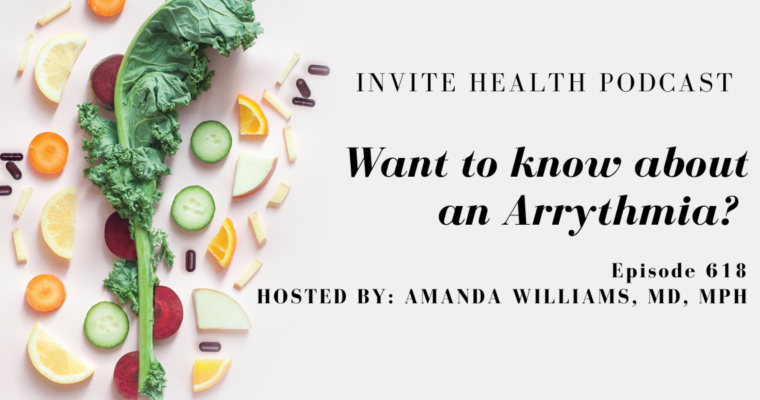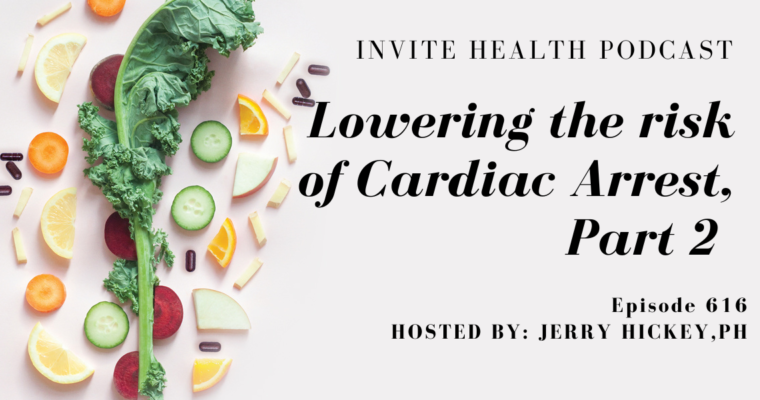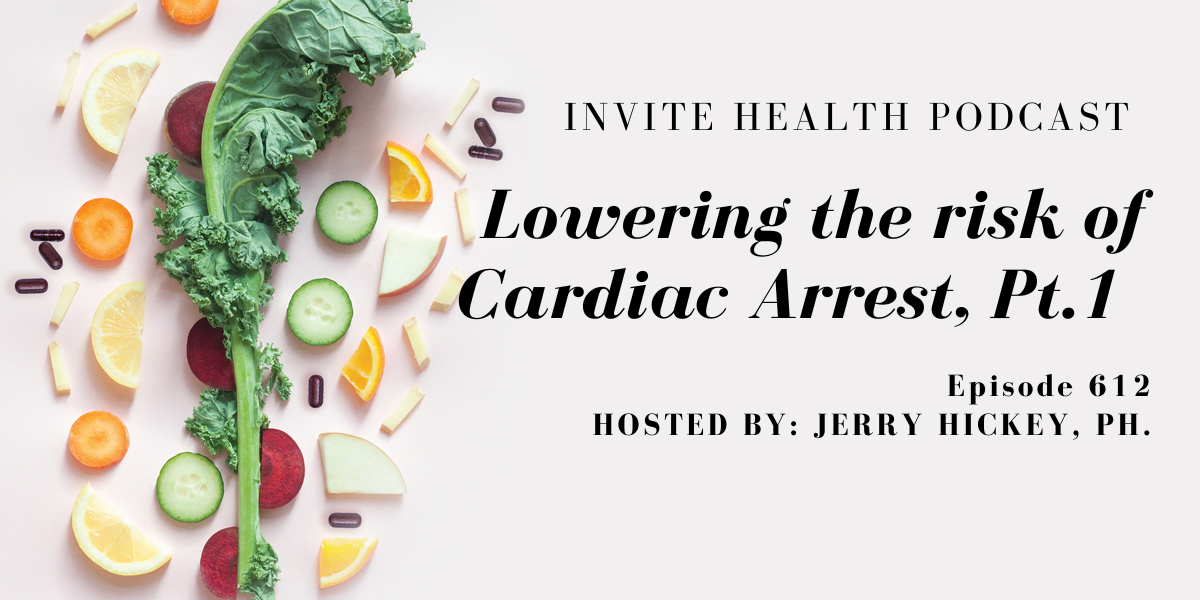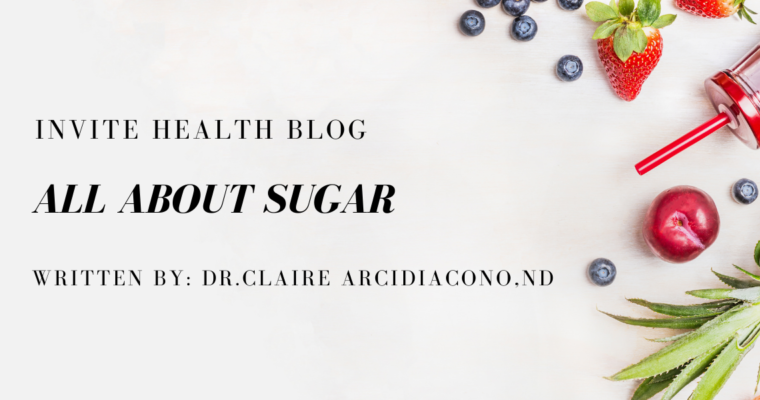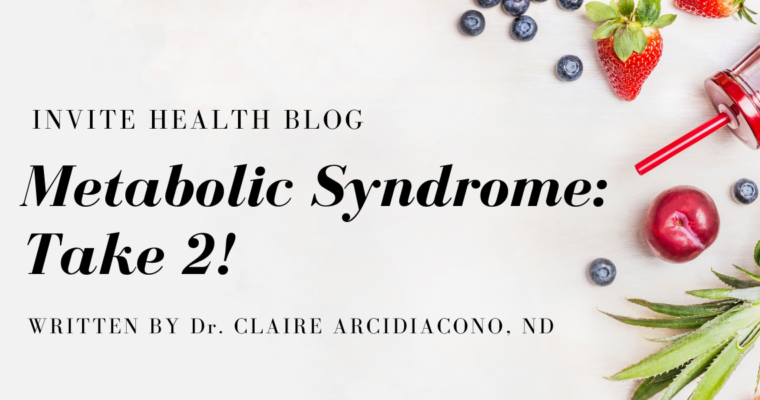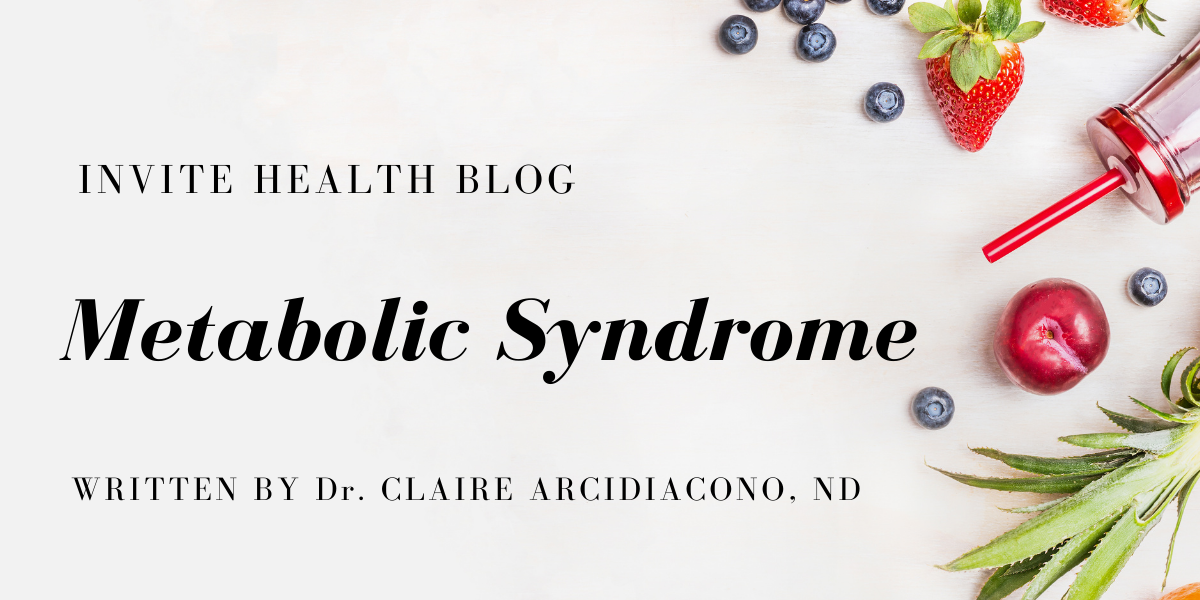Subscribe Today!
Please see below for a complete transcript of this episode.
LOWERING THE RISK OF CARDIAC ARREST, PART 1- INVITEⓇ HEALTH PODCAST, EPISODE 612
Hosted by Jerry Hickey, Ph.

*Intro Music*
InViteⓇ Health Podcast Intro: [00:00:04] Welcome to the InViteⓇ Health Podcast where our degreed health care professionals are excited to offer you the most important health and wellness information you need to make informed choices about your health. You can learn more about the products discussed in each of these episodes and all that Invite Health has to offer at www.invitehealth.com/podcast. First time customers can use promo code podcast at checkout for an additional 15% off your first purchase. Let’s get started.† [00:00:34]
*Intro Music*
Jerry Hickey, Ph.: [00:00:41] There was a real incident in the Monday Night Football game this week. The safety for the Buffalo Bills, Dunmore Hamlin. He collapsed on the field. In fact they they had to postpone the rest of the game. What happened, he hit somebody with the ball. I didn’t see the game, by the way, but I was busy doing something else that night. He hit somebody with the ball and he suffered a cardiac arrest following the hit. Now, of course, in an NFL football game on the field, there’s excellent medical care with doctors. There’s physical therapist, chiropractic type people, you know, orthopedists, etc.. So he was treated right away and his heart beating was restored. And they worked on it for over 10 minutes on the field. And then he was taken in an ambulance to a local hospital. The problem is the lion’s share of these situations, cardiac arrest occur outside of a hospital and most people don’t survive that. They wind up where the heart does not restore its normal rhythm, its normal beating pattern, and they die of sudden cardiac death, which is a terribly scaring, frightening term. So can you lower your risk of both of cardiac arrest or sudden cardiac death? My answer is yes, to a degree you can, you really can. So all of this and more in my episode, reducing the risk of cardiac arrest and sudden cardiac death. Hi, my name is Jerry Hickey. I’m a nutritional Pharmacists, licensed pharmacist. I’ve been doing this forever. I’m also the scientific director over here at Invite Health. And you can find all of our podcast episodes for free. Any place you listen to podcast basically, or just go to invitehealth.com/podcast. We have hundreds of there. Dr. Amanda Williams and other people help me do the podcast, carry the load, so we continuously are creating high quality podcast that really serve the public, really give good information. If you could leave a review and subscribe, it’s helpful. You can also find Invite on Facebook, Twitter and Instagram at Invite Health.† [00:03:05]
[00:03:06] So let’s get to this really important information, now a cardiac arrest episode is different from a heart attack. A heart attack is technically called a myocardial infarction and in a heart attack, you suffer damage to the heart or the part of the heart because there’s a problem with blood circulation. It’s due to blockage and blood flow. Now, this is usually because there’s a blockage in an artery in the heart, the heart generally has three arteries, some people have more. Arteries are usually the biggest blood vessels. But in the heart, they’re much more and more like a sippy straw. Remember when your kids were going to grammar school or nursery school, etc. And you given that little box, what, like apple juice? And they had this little straw that they penetrated, they broke the little thing and they drank it. Well, the blood vessels of the heart are generally like that, they’re small too. It’s easy to block them. They want to put coronary heart disease, they have a buildup of cholesterol in the heart. It’s plaque in the heart ruptures and a clot forms on the blood vessel wall and stops blood flow to the heart, that’s a heart attack, and part of the heart dies. Now, many people survived their first heart attack, but if they have additional heart attacks, they don’t forget the biggest risk factor for a heart attack is already having had a heart attack. The damage accrues and, you know, maybe by the third or fourth heart attack, there’s not enough heart to go around anymore.† [00:04:42]
[00:04:44] So a heart attack is a circulation problem. It’s basically a plumbing problem. Cardiac arrest is more an electrical problem. So the electrical wiring of the heart, the impulses to the heart originate in the lungs and in different parts of the heart. And basically with cardiac arrest, is a screw up to the heart’s electrical system. And the malfunction causes the heart to beat, you know, dramatically, like there might be many more beats and rapidly and chaotically. And the big issue, the heart stops beating. There’s just too much information coming into the heart. So if the heart isn’t restarted, which is the lion’s share of people who suffer with this kind of problem, cardiac arrest outside of a hospital, there’s death within minutes. It kills hundreds of thousands of Americans each year. Now, what are some causes? Well, heart attack can cause cardiac arrest and sudden cardiac death, in 25% of the cases, it’s not related to the heart at all. Such as what happened to this NFL football player, it was because he had trauma. You know, the more Hamlin, he didn’t have heart disease, he ran into someone else and it affected his heart. But I want to stick with the cardiac arrest and the sudden cardiac death that’s related to the heart, like blockages in the heart, cardiovascular disease, coronary heart disease, etc.. So cardiovascular disease could be anywhere in the circulatory system. Coronary heart disease is within the heart itself. So albeit the heart pumps blood, the heart also requires a lot of blood, I mean, the heart requires a lot of oxygen and nutrition. Your heart’s basically, for most people, pumping about 80 times a minute and a little over 100,000 times a day, millions of times per year. So it needs a lot of oxygen and nutrition. So it needs to get its own blood supply, even though its job is to pump blood, it also needs blood. So the most common cause of cardiac arrest is an underlying heart problem, that’s the number one cause.† [00:07:07]
ICYMI:THE CIRCULATING NEWS ON OUR CIRCULATION HEALTH PROGRAM>>READ NOW!
[00:07:08] So coronary artery disease, blockages within the heart itself. Coronary artery disease, if you have it, it might also be called ischemic heart disease. Okay. So this is due to atherosclerotic plaque, plaque in the walls of of of the arteries inside the heart, which stiffens them and reduces the flow of blood, the rate of flow of blood in the heart itself. Now, this, of course, reduces the amount of blood flow in the heart, so the heart’s not getting fed with enough oxygen, etc., the heart muscle, and this affects its function. So one thing it leads to is, ventricular fibrillation. So let’s talk about that. The heart has four chambers, the two top chambers are the atria, and the bottom chambers are called the ventricle. So the atria fill up with blood, so the right side is restoring, the right side of the atria receives blood that’s already used, so the oxygen’s depleted from it. So on the right atria and the right side of heart, that blood goes down to the right ventricle, that pumps the blood to the lungs to pick up more oxygen. Then that flows to the left side of the heart, the oxygen rich blood that the heart starving for, it gets pumped to, from the lungs to the left side, the heart left atrium. And this in turn sends it to the left ventricle. So it’s the left ventricle that pumps oxygen rich blood to the brain and to your muscles and to your organs and systems, etc. Now, it does this through the biggest artery in the body, the aortic artery to thoracic and abdominal aortic artery, and then all the other arteries branch off of that and they bring oxygen rich blood throughout the body. So when you have a problem with the ventricles, you’re not on the right side, you’re not pumping enough blood to the lungs. And on the left side, which is really dangerous, you’re not pumping blood to the body. You’re not pumping blood to the brain and the kidneys and the muscles, etc.. Incredibly dangerous situation. So when you have ventricular fibrillation, your lower chamber of the heart, they’re quivering. So you can figure it this way, the top chambers of the heart, the atria, fill up with blood and the bottom chambers, the ventricles pump the blood. So ventricular fibrillation is the most common precursor to cardiac arrest. Now, there’s other common causes of cardiac arrest, heart failure. There’s different types of heart failure, but heart failure generally, the heart is damaged somehow, and it’s not pumping enough blood for the body’s needs. So the body’s not getting enough oxygen. And then there’s different stages of heart failure and heart arrhythmias, which, an arrhythmia of the heart just means an irregular heartbeat, like a common one is atrial fibrillation, where the top chambers of the heart are quivering and they’re skipping beats and a double beats and triple beats, and they’re racing, maybe they’re pumping, you know, 200 times a minute instead of 80 times. And this causes blood, blood clots to form in the upper chamber. And it goes to the left, lower chamber, and it’s pumped into the brain, it cause a stroke. But these arrhythmias can also lead to cardiac arrest.† [00:10:41]
[00:10:43] Very low potassium is called hypokalemia. Potassium, along with sodium chloride, magnesium, calcium, help control the rate of pumping of the heart. A very low potassium, you have all kinds of arrhythmias, so it can lead to cardiac arrest. Excessive exercise, intense physical activity can cause a cardiac arrest and also a severe shock, like an electrical shock. Now, the incidence of cardiac arrest is more common in older men. So what’s the incidence in the U.S. by the way? There’s about 535,000 cases of cardiac arrest annually in the United States alone. So a certain amount of them occur within the hospital, maybe people are undergoing heart surgery or something. So they’re pretty much covered because they’re going to take those paddles and bring the heart back, right. But about 326,000 cases of cardiac arrest each year in the United States alone occur outside of the hospital. Now, survival after a cardiac arrest outside a hospital is about 8 to 10%. So if 326,000 people have cardiac arrest outside of the hospital, only about 33,000 survive only. So there’s like 290,000 people, something like that, I didn’t do the math, that die from cardiac arrest each year because their heart doesn’t restart, they suffer from sudden cardiac death. So what are some of the risk factors? And by the way, 50% of the people who have sudden cardiac arrest, they don’t have any warning sign. There’s no symptoms, it just happens with minutes, within minutes, they’re gone. I’ve seen this happen to people. I was on Pennsylvania Station going the up escalator, Pennsylvania stations way below ground. So you have to take the escalator up if you’re older, you don’t want to run up the stairs. I saw a guy on the other side, his face all of a sudden turn purple. He looked like he went into shock. He keeled over, that was the end of the guy. I mean, that’s how quickly it happens. But what are some causes? Aging, aging increases the risk, of course it does. Aging is hard on the heart, so you want to take nutrients like Ubiquinol and magnesium and eat enough potassium, get your exercise, etc. for your heart you want take fish oils. Okay. So aging, because it affects the heart. Smoking, smoking is a big cause of cardiac arrest and sudden cardiac death, heart failure and heart attacks and strokes. You don’t want to smoke. Only about 20% of people who smoke will end up with lung cancer, but they get all these other diseases.† [00:13:40]
[00:13:41] High blood pressure, you have to treat your high blood pressure, high cholesterol. You really want to get your cholesterol under control. Being sedentary, a sedentary lifestyle, see, you don’t want to over exercise, but you also don’t want to be sedentary. Obesity, yeah, obesity causes so many terrible things. Diabetes, get your blood sugar under control and heart muscle diseases like cardiomyopathies, you know, damage to the heart muscle. Now, current smokers who also have heart disease, coronary artery disease, damage to the arteries inside the heart, they have a 200% to 300% higher risk of developing sudden cardiac death. And quitting, quitting helps restore your risk of sudden cardiac death back to almost normal rather quickly. You really want to quit smoking, it’s never too late to quit smoking. So here’s the hard fact, this is why you want to hear the rest of this podcast episode and the 326,000 people in our country every year who suffer with sudden cardiac arrest. Only about 10% survive. The other 293,000 perish within minutes.† [00:14:54]
[00:14:55] So what are things that help prevent a cardiac arrest and sudden cardiac death? Eat healthy, you know, like a mediterranean diet. You don’t want all that sugar. You don’t want the processed foods, processed foods are dangerous for your health. You don’t want too much salt. You want to control your alcohol intake. You want to eat your green leafy vegetables. You want to eat your salads, you all eat your tomatoes. You want to eat your fresh olives, you want to eat, you want to eat good foods, wholesome, healthy foods. Things like broccoli and broccoli rabe, spinach and asparagus and things. You want to eat seeds and nuts. Like every day I eat seeds. I eat nuts like, like walnuts and pecans and almonds, they’re very healthy. You want to exercise, like you want to get 150 minutes a week of good exercise, like riding a bike, taking good walks, lifting weights. You want to stop smoking now.† [00:16:00]
[00:16:01] But what about supplements? Supplements help, fish oils, Ubiquinol, that’s the active version of Coenzyme Q10, folate. I’ll go into these a little bit, magnesium, zinc, a multivitamin, they really matter. they really matter. They really make a difference. So let’s look at fish oils, that’s probably the number one nutrient for preventing sudden cardiac death. There’s been many meta analysis, many meta analysis where they look at many, many studies as many meta analysis, like 20 of them, where they take a group of studies. Now, this gives you a lot more people, it gives you all these different researchers and all these different academic research institutions, and they pick out the best, juiciest studies, the ones that really matter, and a whole bunch of these meta analysis, a meta analysis one performed properly, shows that something works or does have a whole bunch of meta analysis show that fish oils, they lower the risk of cardiac arrest and sudden cardiac death, possibly like I mean, some studies show 30, 40, 50% decrease. It really matters. Make sure you get a nice fresh, clean fish oil. You know, fish is a fat these are fats and fats can go rancid. So if you open a bottle of fish oils, and it smells rancid, you want to return it to the store, you want fresh fish oils. But even though I eat fish and I eat good quality fish, even I eat fish, I still take fish oil capsules and krill every day because not only are they important for reducing your risk of sudden cardiac death and cardiac arrest, but they are also are really important for vision and they’re super important for your memory. So there’s no reason not to take a good quality fish oil every day and taking one or two capsules a day is incredibly safe, even if you’re on blood thinners.† [00:17:54]
[00:17:56] So let’s look at some of the data. Here’s the Journal, Cardiovascular Research. Now, this is going all the way back to 1999. We’ve known for decades that fish oils reduce the risk of cardiac arrest and sudden cardiac death, we’ve known it for decades. So in the Journal, Pharmacological Research, which is like a pharmacy journal, we take years of pharmacology looking at fish, getting 200 milligrams a day of DHA. So let’s talk about that, fish oil, they generally look at two of the fats. They look at EPA and DHA, DHA might be more important for your vision and memory, where EPA might be the one that’s more important for the heart. But they’re both important. Looking at fish and judging it by how much DHA you’re getting, because you get less DHA than you get from the EPA, there’s a ratio, you get more EPA, generally than DHA. So they looked at 200 milligrams a day of DHA , reduced the risk of dying after a heart attack by 50%. There was a very strong correlation with fish oils and a reduction of dying after a heart attack. Well, that’s pretty good, because if they reduce damage to the heart after a heart attack, a lot of damage from a heart attack happens when circulation is restored, like those seconds after heart attack. Fish oil has reduced risk of thrombosis, but you need a lot of fish oils to reduce the risk of thrombosis, that’s a blood clot. Fish oils reduce triglycerides, I’ve done podcast on that. Triglycerides are these kind of greasy fats, they’re different than cholesterol, they can invade the heart, the kidneys, the liver and the brain. Well, they’re not good for the brain, but they lead to strokes and heart disease. And statins don’t reduce triglycerides, fish oils do and fish oils reduce the risk of developing a cardiac arrhythmia, which is fantastic because cardiac arrhythmias are the most common cause of cardiac arrest and sudden cardiac death.† [00:19:56]
FISH OILS ARE GOOD FOR YOUR JOINTS & KRILL MIGHT BE SUPERIOR- INVITE HEALTH PODCAST, EPISODE 580>>LISTEN NOW!
[00:19:57] So let’s go to the Lancet. Lancet is a British journal, it’s kind of like our New England Journal of Medicine. This is going back to March 2007, the researchers said that there’s plenty of epidemiological evidence and clinical evidence, you know, human clinical trials that an increased intake of fish oils, now fish oils have different names, they might be called long chain fatty acids or marine oils. They protect you from mortality, from coronary artery disease. Coronary artery disease is the biggest killer on the planet. Because the arteries of the heart are clogged. So if it’s on the left side of the heart, okay, the Widowmaker, the Widowmaker that supplies blood to the lower ventricle, etc. If that’s clogged, it’s really dangerous. So the fish oils reduce your risk of coronary artery disease and die from coronary artery disease, because that was the major focus of this review, because coronary artery disease leads to strokes, heart attacks, sudden cardiac death, cardiac arrest, all these different horrible things. Abdominal aortic aneurysms where the blood that major blood vessels that leaves the left, lower left ventricle that supplies oxygen to the body, that artery just eliminates, and blood isn’t getting pumped anywhere. I mean, it’s just terrible things. So here’s Kobe University, which is interesting because a lot of people go out and eat Kobe beef, but Kobe University does a lot of research on heart disease. Long term supplementation with EPA especially is effective for prevention of major coronary events and patients with high cholesterol. So a major coronary event could be a stroke, a heart attack, a sudden cardiac death, a cardiac arrest, it could be anything. Okay. So and people in high cholesterol, if you give them fish oils in addition to all their other medication, like their statins and their high blood pressure drugs, etc., it helps prevent them from dying. So they looked at 18,645 patients with a total cholesterol greater than 6.5 million moles per liter. Okay. So that would be like a cholesterol of 250. So that’s high cholesterol. That had to be the minimum level. They did statinless versus statins, with fish oils over a five year period, this is a good study, adding the fish oils to the study. Now, this is legitimate research to reduce the risk of sudden cardiac death, fatal heart attacks, nonfatal heart attacks, unstable angina, needing heart surgery, you know, like a stenting or angioplasty or bypass grafting, that kind of thing. So adding fish oils to the statin and people with clogged arteries in the heart, adding fish oils, reduced their risk of a fatal heart attack by 19%, along with sudden cardiac death. So, I mean, you can’t argue with this. And they found that lowering the cholesterol was not the major factor for preventing a cardiac event. It really was like calming down the heart with the fish oils. It also reduced the risk of unstable angina. I mean, that’s just, you know, the heart’s not getting enough blood, it’s very dangerous, that triggers heart attacks and strokes, non-fatal heart attacks in the EPA Group versus just statins alone.† [00:23:46]
[00:23:48] So here’s the, here’s the Journal Nutrients March 2010,So we’re marching forward now, it’s the Department of Preventive cardiology at Ludwig Maximilian University. If you’re not familiar with them, they do a lot of great research, they’re in Munich. I’ve never been to Munich or the Black Forest. I would love to go there, it’s on my bucket list. I’ve got a lot of time for my bucket list, I’m very healthy. They state that sudden cardiac death is responsible for 15% of all deaths in Western countries. So that would be, you know, the United States and Canada and Germany and France and England and Ireland and Spain and all these places. And they said that the fish oils, the EPA and the DHA protects you from sudden cardiac death and other major cardiac events, according to their data analysis, so there’s a lot of data out there. So a lot of people who really know their stuff reviewing this data. So this is the British Medical Journal, they abbreviate that BMJ, if you look at it, it’s December 2008. It’s 12 studies of over 32,000 participants. Fish oils reduce the risk of sudden cardiac death, now this is 12 studies, over 32,000 patients. So they’re patients, they’re not your general public. So there are people that already have issues with their heart. It reduce the risk of sudden cardiac death up to 48% and reduce the risk of dying from other heart related causes by up to 31%. So there’s real value with fish oil not to mention, like I said before, fish oils are very important for brain health and memory. And let me tell you something, there’s certain nutrients that we absorb less of as we age, like lutein for vision and memory, like Zinc for 6000 things, we absorb less from our food with age. One of the things that declines in the brain in the eyes of the heart of with age is fish oils. You actually need more as you’re older, not to mention that a lot of people with heart disease are on statin drugs. When you’re on stop drugs, you actually need more fish oils because statin drugs decrease the level of certain heart related nutrients in the body with, that’s just how they are one of the things they do, that’s one they’re bad side side activities. They reduce the level of Ubiquinol, which is the active version of coenzyme Q10 , a reduced level of lutein. They’re reduced their level of Ubiquinol when you’re when you’re on and a reduced level fish oils. When you’re on a statin, you have to make up for these things, you need more fish oils. That’s why sometimes when they study fish oils with statins, they don’t get good results because they don’t realize the statins. For the lowered fish oils, you actually need more. Plus just the act of aging reduces the amount of fish oils in the body. So on this review in 21 studies in a British medical journal of over 32,000 people, fish oils reduce the incidence of sudden cardiac death up to 48% and reduce the risk of dying from other heart related events by up to 31%. Now, we do know that statin drugs do reduce your risk of dying after a heart attack. We know that statin drugs ACE inhibitors reduce your risk of dying after a heart attack. So that’s post infarct, aspirin reduces your risk of dying after a heart attack. But so do fish oils, so do fish oils. So they’re all important.† [00:27:12]
[00:27:12] So this is the Mayo Clinic proceedings, December 2019. Okay, so it’s very recent. Fish oils reduce cardiovascular events. So who did this? Who did the cardiovascular event could be, die from heart failure, It could be a heart attack, it could be sudden cardiac death, it could be cardiac arrest. They’re all in there. So who did this research? University of Queensland School of Medicine in New Orleans, the University of South Dakota School of Medicine and St Luke’s Mid-America Heart Institute. They do a lot of heart research in St Luke’s Mid-America Heart Institute. They’re some of the people that said, Hey, if you have heart failure, you have to take Ubiquinol to help prevent future heart attacks. So they reviewed three huge, three large randomized controlled human clinical trials of fish oils, on the occurrence of cardiovascular disease events, so cardiovascular disease and stroke, heart attacks and cardiovascular death again. One trial had over 8000 people, most with coronary heart disease. So these people are at risk, they’re at great risk of these events. High dose purified EPA reduced the risk of major cardiovascular events by 25%, yeah, but we’re not, that’s like prescription fish oils, I’m not taking that. So they looked at two other very large, recent randomized controlled human clinical trials. And just taking fish oils, you know, like two capsules a day, let’s say, good quality fish oils significantly reduced the risk of coronary heart disease related deaths and cardiovascular deaths in general. So coronary heart disease, once again, is when there’s blockage within the heart, cardiovascular disease is anywhere in the circulatory system. So this was especially true for people at low levels of fish oils in the blood or for people not taking, not eating enough fish, not having a good serving of fish twice a week. All the patients on statins were coronary heart disease, should be on a high dose fish oil, by the way, especially if they have high triglycerides. Now, the American Heart Association, this is taking a long time. I didn’t realize this podcast episode would be so long. The American Heart Association emphasizes fish oil supplements to reduce the risk of congestive heart failure, coronary heart disease and ischemic stroke and etc, and sudden cardiac death in people with heart problems. So that’s really important. You know what? I’m actually gonna stop here. I have a lot more to say about this. We’ll continue this in the next episode. So I want to thank you for listening today. Take your fish oils, take your fish oils. Take one or two a day. I do every day. It’s one of those things that keeps you alive, that, Ubiquinol, a multivitamin. We’ll go into that in part two of this episode. So I want to thank you for listening. You can find all of our episodes for free wherever you listen to podcast or just go to Invitehealth.com/podcast. I’m sorry, Invite Health. Yeah. Invitehealth.com/podcast. You can also find us on Twitter, Instagram and Facebook at InVite Health. If you listen to our podcast, if could you subscribe and leave a review or to be very helpful. Thank you for listening. Hope to see you next time on the next episode of the InViteⓇ Health Podcast. Jerry Hickey signing off.† [00:27:12]
*Exit Music*


